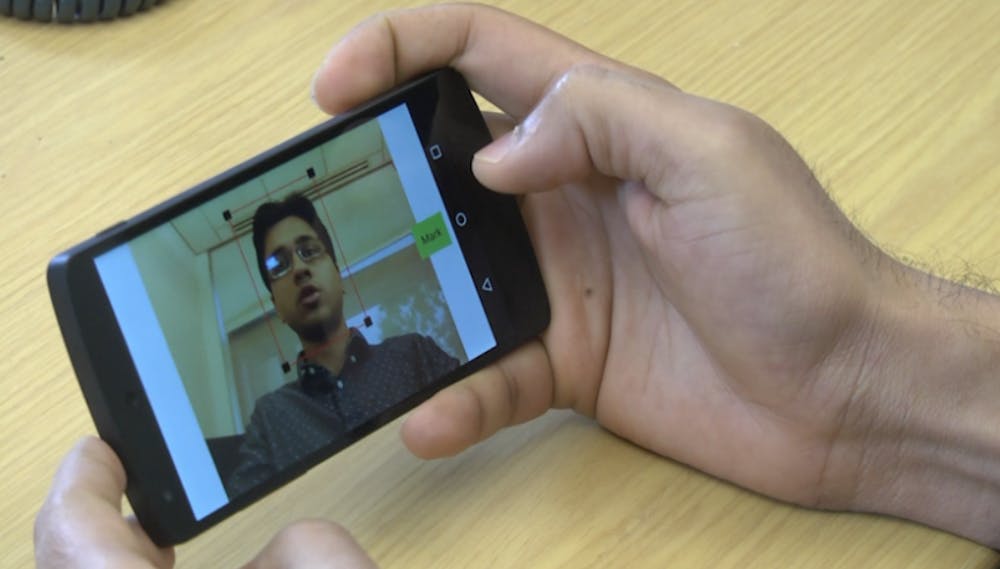Duke researchers have programmed an app that allows users to control what their audiences can see during a video conferencing call.
Users that are participating in video conferencing calls can draw rectangular markers around the segments of the scene that they want to make public, telling the software to black out the excluded regions, explained Animesh Srivastava, a graduate student and one of the co-authors of the study. The app was designed to prevent accidental security leaks during video conferencing calls.
Srivastava cited an example of such a leak, which occurred during a 2014 Superbowl game.
“The stadium invited press to their security center," he said. "While they were reporting, [someone] captured a screen that had the security center’s Wi-Fi and password which was then broadcasted to the whole world.”
Srivastava explained that there are two parts of the privacy software. The first is the rectangle-drawing function the software provides, which allows users to mark aspects of the video appropriate for public display. In addition, users can draw multiple rectangles if they want to mark multiple items public. For example, the software could allow teachers to display both their face and a segment of a whiteboard in the background.
“We specifically designed the rectangle marker because it is easy to detect and fast to detect by our system,” said Nisarg Raval, a graduate student in the computer science department and collaborator on the project.
Secondly, the privacy application runs software within the operating system to detect private information that users may want to hide, Srivastava explained. When a user tries to capture this kind of information using a smartphone, it is automatically blacked out by the app.
Srivastava added that the software of the app is efficient enough to work with real-time video feeds and can display modified broadcasts without causing a lag.
He also noted that one of the primary advantages of the software is its user-friendliness.
“The results from [a user focus group] were very positive," he said. "All twenty-six participants gave us a very positive feedback, and they deemed our system fast and easy to use.”
Other benefits of the software include its compatibility with multiple third-party apps. Srivastava explained that the privacy software can be integrated into the Android operating system, which means that it could soon be used in conjunction with any third-party video conferencing apps such as Skype or Google Hangout.
“Our system is not currently available in the market; it’s a proof of concept,” Srivastava said.
He added that the system has been well-received by the research community but that in order to make it ready for the commercial market, the team will need to polish the product. Some of the improvements they plan on making include modeling the software to be compatible with multiple operating systems to reach a broader audience.
Srivastava said that the software currently works with Android and Linux operating systems, but from an engineering standpoint, it would be relatively easy to modify the software to fit other devices.
“The concept, design and framework of our software is generic enough that we can easily build it for another operating system as well,” he said.
However, Srivasta explained that Apple's rules on system modification do not allow for their product to be installed.
“Since our software is inside the operating system, we need to have the operating system source code,” he said. "Since our paper is already published, the idea is out there. So we’ll see. If Apple is interested, they might approach us."
Other contributors to the project include Ashwin Machanavajjhala, assistant professor in the department of computer science, and Landon Cox, associate professor in the department of computer science.
Get The Chronicle straight to your inbox
Signup for our weekly newsletter. Cancel at any time.

